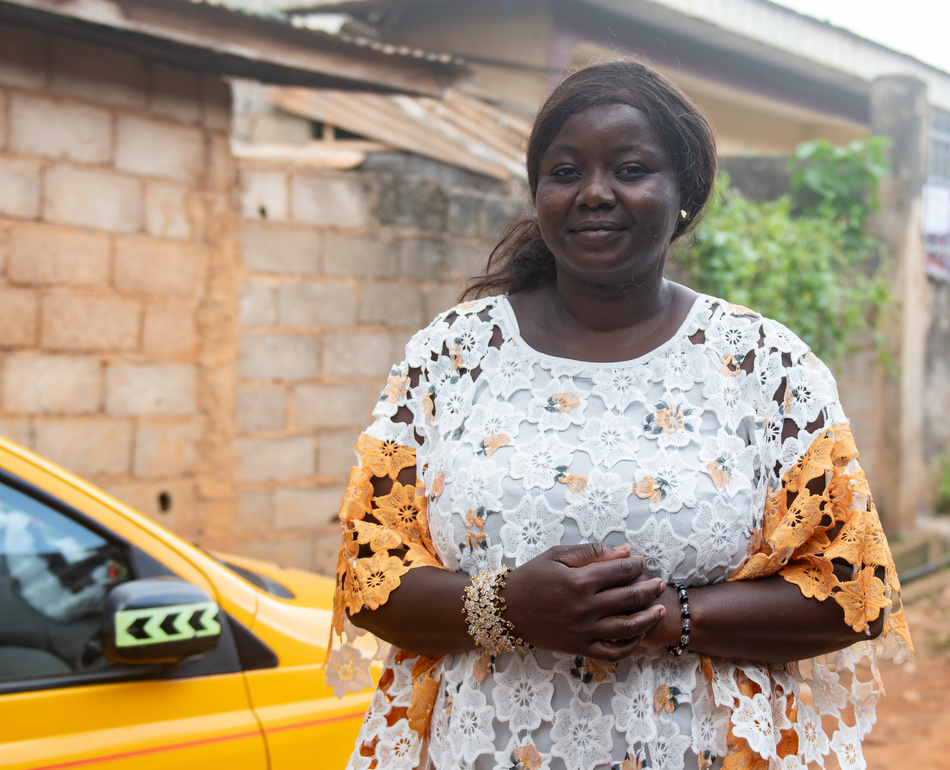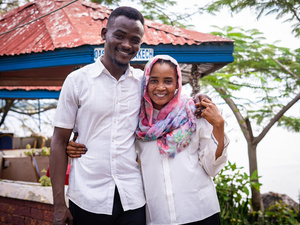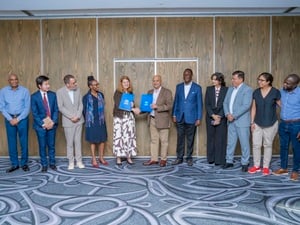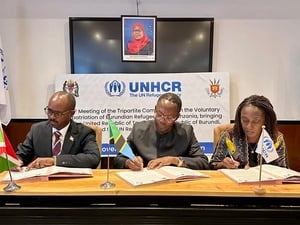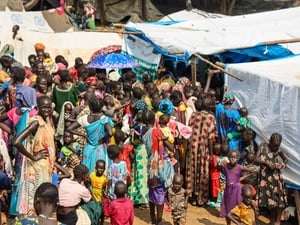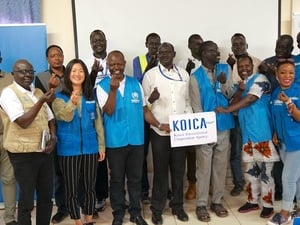Showcasing the potential of refugee women to contribute to economic growth in Cameroon
Showcasing the potential of refugee women to contribute to economic growth in Cameroon
A decade ago, Danielle Siawali and her family were forced to flee the Central African Republic. As the eldest of four children, she was keenly aware of her parents' struggle when they arrived in Cameroon. To help pay for her school fees, she began selling snacks in secondary school. Her determination to find a more stable source of income to support her university education led her to learn the art of crafting fascinators and other trendy hair accessories.
"I wouldn't be able to make ends meet without this activity," Danielle explains. "When you put in the work, there is a good return. Thanks to this activity, I pay for my transport, I pay for photocopies, I pay for course notes, and it allows me to meet certain basic needs. "
In 2014, Zainabou Abou, who also fled the Central African Republic and found refuge in Cameroon, embarked on a journey of creativity. She learned to use beads to craft decorative items and fashion accessories. What started as a hobby soon became her means of sustenance, and she developed a thriving business that granted her financial independence.
"Without this business, I would have had the life of a beggar," says the 34-year-old Central African refugee. "Not only does it keep me busy, but it also allows me to plan ahead and do many things."
Meanwhile, Sheila Marallah, another Central African refugee in Yaounde, took a different entrepreneurial path. She produces liquid soaps and bleach, which she sells in her neighbourhood. "Before I started making household products, I wasn't really doing well financially. After I started making my own liquid soaps, my bleach and everything, it's a bit easier to get by."
"We have the desire to be able to earn money, but sometimes there is no support, there are no resources to start for most of us"
Like these three entrepreneurs, nearly all refugee women in Cameroon have daily occupations, with 43 per cent working as traders and 42 per cent as farmers. However, their journey is not without its challenges.
"Despite their remarkable resilience in the face of adversity, refugee women require more support to achieve economic resilience," says Carole Ndoumba, a UNHCR livelihoods expert in Yaounde. "It is crucial to build on Cameroon's inclusive policies by helping refugees transition from the informal sector to the formal sector. By being registered businesses, having bank accounts and paying taxes, they can contribute more effectively to the country's economic development. UNHCR continues to tirelessly advocate for the inclusion of refugees in local and national development plans and in projects that promote self-reliance by other UN agencies, development organisations, or non-governmental organisations."
Through such advocacy efforts, Danielle, Zainabou, and Sheila were invited to showcase their products and entrepreneurial ventures at a forum addressing the situation of forcibly displaced and vulnerable people in the Central African sub-region. This forum, organised in Yaounde in September by the G100, an NGO comprising 100 influential women leaders from around the world, provided them with a platform to share their experiences.
Their mini-exhibition at the "G100 Central African Meetings" allowed them to reflect on the challenges they face in their entrepreneurial activities, including a lack of resources and knowledge to standardise their products for scalable production and competitiveness in larger markets. It also offered them an opportunity to articulate their plans for the growth of their businesses.
Zainabou dreams of establishing a large artisanal and training center and acquiring equipment to standardize her products alongside craft centers. She also aspires to work with biodegradable materials to make her business more environmentally friendly.
For Danielle, the chance to showcase her handiwork in front of influential leaders represents an opportunity to demonstrate what refugees can achieve with just a little support.
"We have the desire to work with our hands; we have the desire to be able to earn money, but sometimes there is no support, there are no resources to start for most of us," she emphasises. "We have the will; we are just waiting for the opportunities to seize them."


